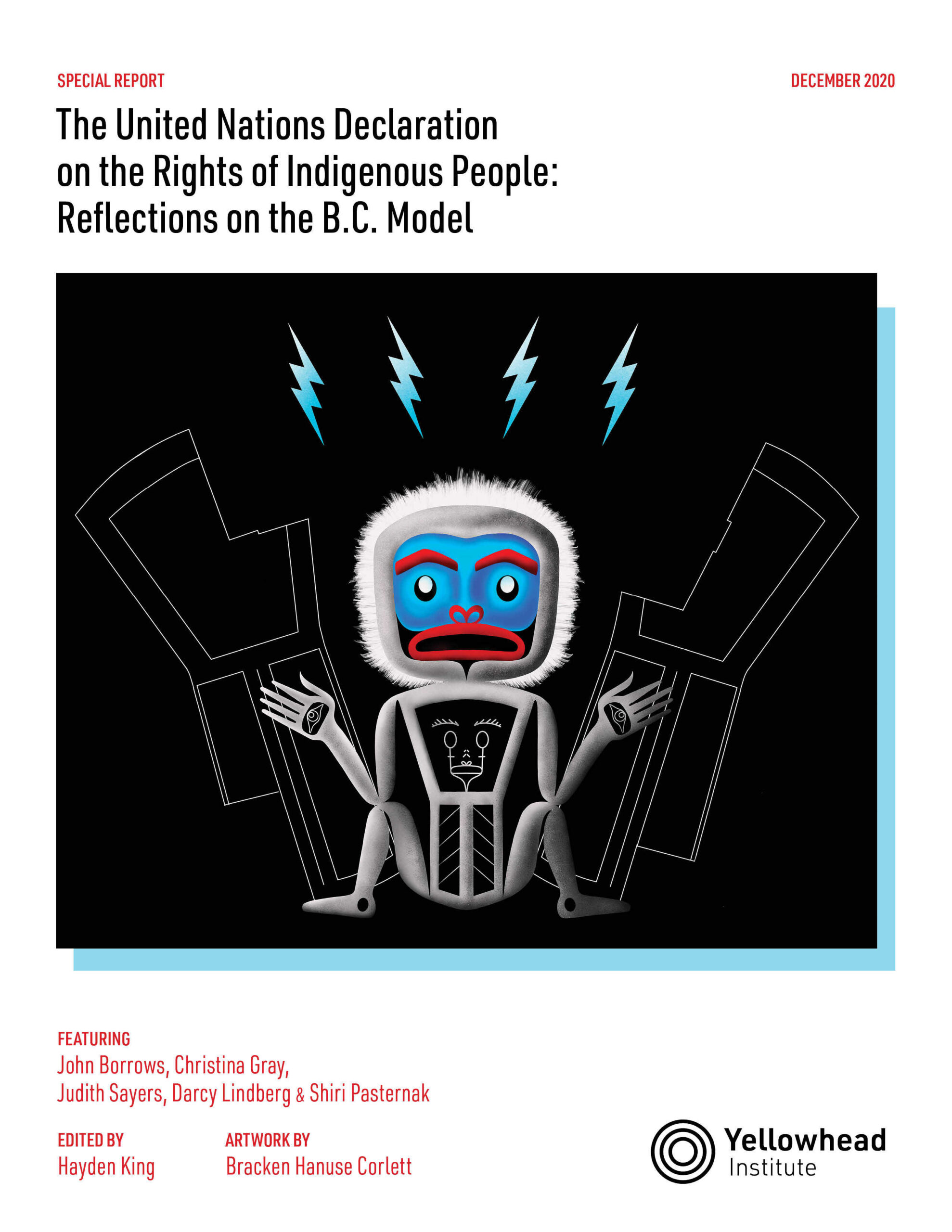- About
- Research
-
-
- Special Reports & Features
- Braiding Accountability: A Ten-Year Review of the TRC’s Healthcare Calls to Action
- Buried Burdens: The True Costs of Liquified Natural Gas (LNG) Ownership
- Pretendians and Publications: The Problem and Solutions to Redface Research
- Pinasunniq: Reflections on a Northern Indigenous Economy
- From Risk to Resilience: Indigenous Alternatives to Climate Risk Assessment in Canada
- Twenty-Five Years of Gladue: Indigenous ‘Over-Incarceration’ & the Failure of the Criminal Justice System on the Grand River
- Calls to Action Accountability: A 2023 Status Update on Reconciliation
- View all reports.
- Special Reports & Features
-
-
- Yellowhead School
-
- The Treaty Map
- LIBRARY
- Submissions
- Donate
In November 2019, the province of British Columbia passed the first law in Canada aimed at implementing the United Nations Declaration on the Rights of Indigenous People.
This Special Report – with contributions from six primarily Indigenous authors – considers the promise of that legislation but also some of the challenges that have emerged, specifically around implementation. Taken together, this resulting report offers both caution and insight for communities working towards realizing the Declaration in Canada.
KEY QUESTIONS
- What opportunities does UNDRIP present for Indigenous communities seeking justice?
Related Resources
While it may be some time before UNDRIP is realized in this country legally, the legislation in B.C. and in Canada is a helpful tool for Indigenous communities to hold governments accountable politically. In an atmosphere where justice is seemingly and perhaps ironically only won by Indigenous communities through conflict in the public square, in the courts, and on the ground, the Declaration offers an opportunity.
- Hayden King
artist
Bracken Hanuse Corlett
Wuikinuxv and Klahoose Nations

